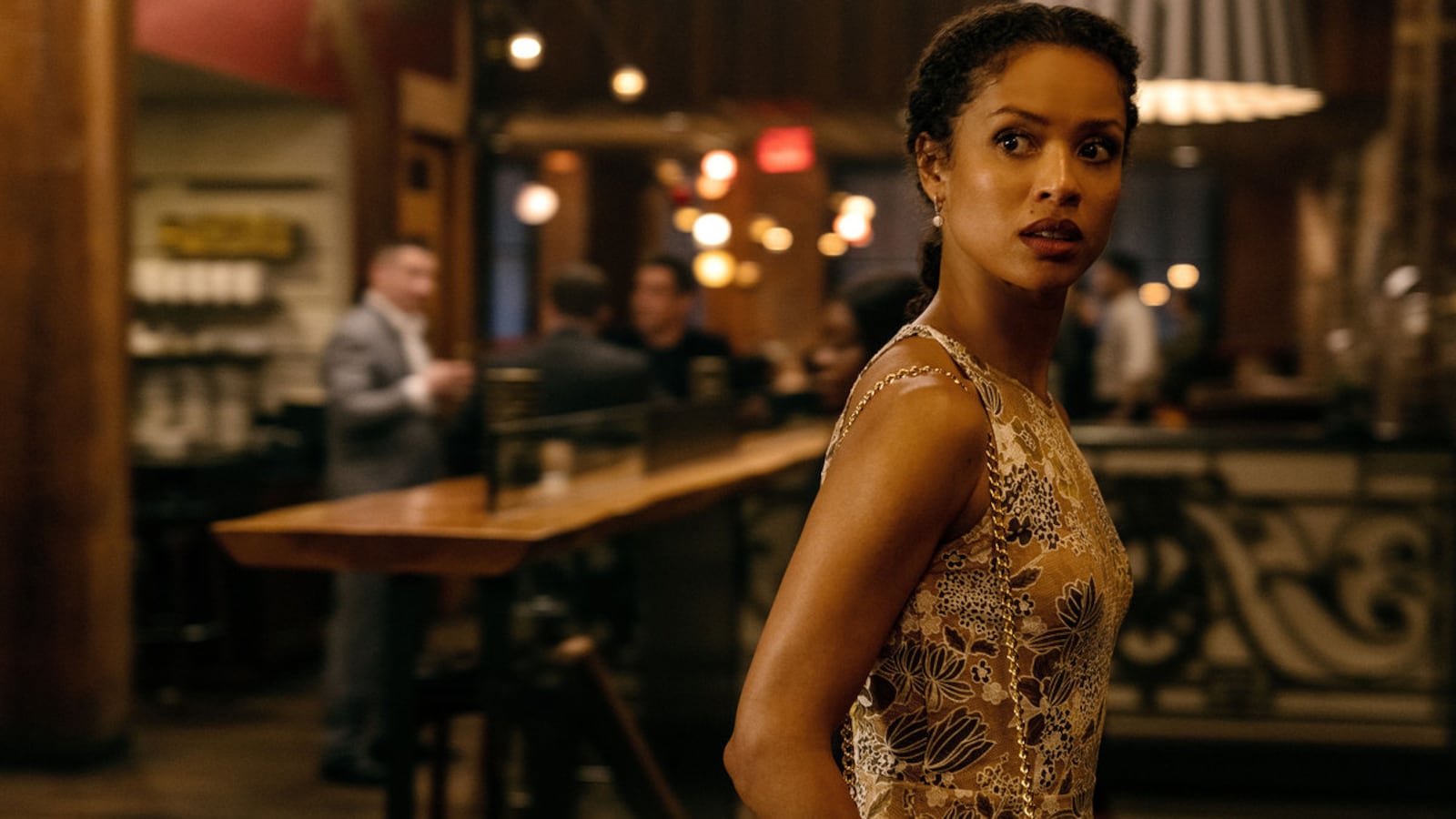Apple TV+’s Surface is the latest drama series from Reese Witherspoon’s production company Hello Sunshine, which, at this point, we have only to thank for our modern obsession with watching dissatisfied, privileged white women stare longingly out of windows while their sketchy husbands lurk in the background. Likewise, the DNA of Witherspoon’s most acclaimed production credits, including Big Little Lies and Gone Girl, are weaved all throughout the actress’s latest television endeavor, about another dissatisfied, privileged (Black) woman with a husband she should probably leave.
Created by Veronica West, Surface stars British actress and co-producer Gugu Mbatha-Raw as Sophie Ellis, the wife of a San Francisco venture capitalist, who lost her long-term memory from a head injury after jumping off a boat in a suicide attempt. At least, that’s what she’s been told by her husband, James (Oliver Jackson-Cohen)—whose vibes are immediately off—her medical records, and a particularly patronizing shrink named Hannah (Marianne Jean-Baptiste). Think of a tonally sad, foggy version of Overboard set to intense orchestral music.
The series begins five months after Sophie’s incident, when she’s functioning physically but is still an empty shell of a person due to her amnesia. Quiet and obliging to James’ wishes, we initially get the idea that she’s a bit of a Stepford wife. Attending galas on his arm in fancy dresses (that he approves) seems to be the only thing she has to do in between therapist sessions and experimenting with other memory recovery methods.
When Sophie starts experiencing flashbacks, however, she becomes increasingly less satisfied with the curt answers fed to her by James and her therapist. She also runs into a mysterious man named Baden (Stephan James), who claims to know more about her life, and especially her spouse, than she does. Suddenly, with Baden’s help, she has no choice but to dive into her own investigation. (Because every subsequent plot turn and character reveal is essentially a twist, this is all I can really tell you without spoiling anything.)

Gugu Mbatha-Raw in 'Surface'
Courtesy AppleTV+So why would a woman with such a comfortable life and a dashing, rich husband jump off a boat? Well, if you’ve ever read a beach novel about a dead or missing wealthy woman, you can probably think of a million reasons why, which is what makes Surface a surprisingly fun and engaging game of Clue, despite what you may have read about it so far.
The eight-episode series, which premiered on Friday, has not exactly received glowing reviews—aside from Mbatha-Raw’s stellar performance, which is deeply impressive for a role so hollow. Critics have pointed out Surface’s lack of originality, which even the show’s more enthusiastic viewers, like myself, can’t deny. From its foggy opening credits to its opulent setting to the type of woman at its center, it feels like it would’ve been more fresh in 2016. It’s also not a particularly sexy crime drama (although everyone who stars in it is technically sexy).
Still, I didn’t interpret the show as “bland.” Rather, as someone who’s seen a lot of poorly made, convoluted, and thoroughly try-hard television in recent years (ahem, Euphoria), I appreciated Surface for its simplicity, both in its premise and the way its many twists gently unfold.

Oliver Jackson-Cohen and Gugu Mbatha-Raw in 'Surface'
Courtesy AppleTV+In the era of “prestige” television, it’s easy for writers and producers of shows with big budgets and serious, cerebral subject matter to get high off their own supply, ignoring the specific restraints and nature of the medium in favor of something they deem “cinematic.” But Surface has the deliciously engaging, nail-biting episodic structure of a suspenseful primetime soap you would’ve watched on ABC in the mid-2000s.
The series is also bolstered by an ensemble of captivating performances. Mbatha-Raw, who definitely deserves more top billing, has the tough task of playing a cypher with no characterization other than “glamorous wife” for the first few episodes. But the level of emotion she’s able to capture on her face and behind her eyes allows the audience to see inside her brain the entire time she’s on screen. With a less skilled performer, the show, which heavily relies on the success of her performance, would be like watching a generic avatar in a video game.

Gugu Mbatha-Raw and Marianne Jean-Baptiste in 'Surface'
Courtesy AppleTV+Additionally, Ari Graynor is a standout as Sophie’s best friend Caroline, who doesn’t seem immediately trustworthy. Every time the camera rests on the actress, who’s typically held comedic roles, I’m reminded of the days when actors had interesting faces that told their own story in addition to whatever character they’re playing. And James, whose memorable turn in If Beale Street Could Talk should’ve granted him more starring credits years ago, is equally compelling in his “mystery man” role.
Maybe it’s the #FreeBritney movement or the overturning of Roe v. Wade that made me completely savor this story of a woman trying to win control of her life—and, admittedly, shed a few tears during a scene where Sophie feels lost and defeated, backed by a lush, evocative score. Either way, I had a great (aside from the crying), immersive time watching Mbatha-Raw play Sherlock Holmes and stroll cluelessly around San Francisco in stunning cocktail dresses.






